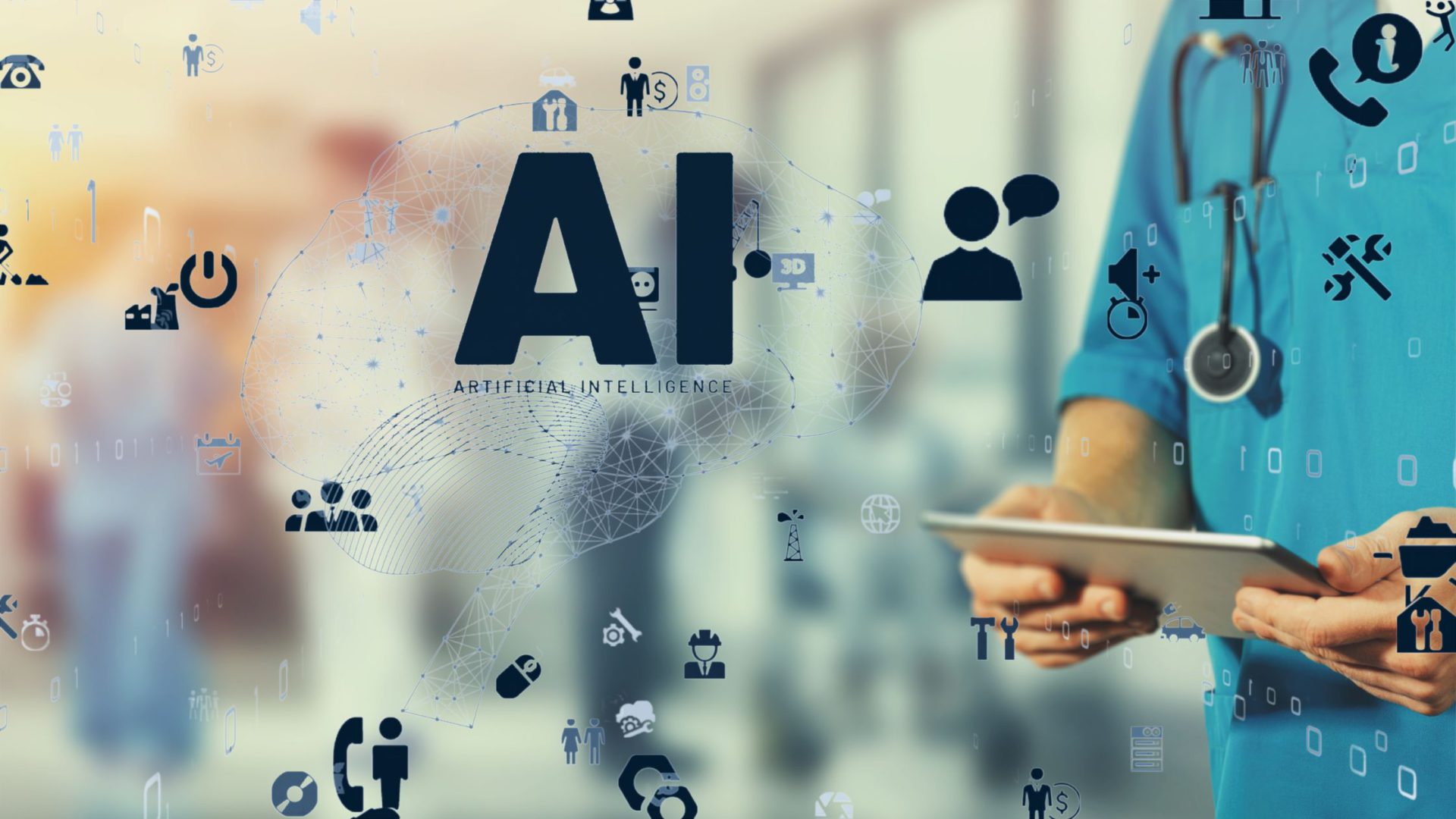Artificial Intelligence Course For Healthcare Professionals
However, to fully leverage these advancements, healthcare professionals and administrators must possess a solid understanding of AI technologies, their applications, and their ethical considerations. In this article, you’ll learn about the importance of AI course for healthcare professionals and how the integration of AI with healthcare can upturn the healthcare industry & professionals.
Why AI is Essential in Healthcare?
AI technologies have made significant strides in recent years, offering a range of applications that can enhance clinical decision-making, patient care, and administrative processes. From machine learning algorithms that can predict disease outbreaks to AI-driven diagnostic tools that can identify abnormalities in medical images, the potential of AI in healthcare is vast.
- Enhancing Diagnostic Accuracy: One of the most significant benefits of AI in healthcare is its ability to improve diagnostic accuracy. AI-powered tools can analyze medical data, such as radiology images, pathology slides, and genetic information, with a level of precision that surpasses human capabilities.
- Streamlining Administrative Tasks: AI is also making a substantial impact on the administrative side of healthcare. By automating routine tasks such as scheduling, billing, and patient record management, AI allows healthcare professionals to focus more on patient care rather than being bogged down by paperwork. This not only improves efficiency but also reduces the likelihood of errors.
- Personalized Treatment Plans: Another critical area where AI is making a difference is in personalized medicine. AI can analyze a patient’s genetic makeup, lifestyle, and medical history to recommend tailored treatment plans. This approach ensures that patients receive the most effective therapies based on their unique characteristics, leading to better outcomes.
- Predictive Analytics for Better Outcomes: AI-driven predictive analytics can forecast patient outcomes by analyzing vast amounts of data, including electronic health records, lab results, and social determinants of health. This enables healthcare providers to identify high-risk patients, intervene early, and prevent complications, ultimately improving patient care.
Why Healthcare Professionals Need AI Training?
- Enhanced Patient Care: AI can automate administrative tasks such as scheduling, billing, and patient management, allowing healthcare professionals to focus more on patient care. Training in AI helps professionals understand and utilize these automation tools, leading to more efficient and streamlined operations.
- Efficient Data Management: AI systems rely on vast amounts of data to function effectively. Healthcare professionals need to be trained in data management practices to ensure data integrity, privacy, and security. The artificial intelligence course for healthcare professionals is crucial for maintaining patient confidentiality and complying with regulations.
- Resource Allocation: AI can analyze data to predict patient admission rates, optimize staffing schedules, and manage inventory. Proper training in AI helps healthcare professionals understand and implement these predictive analytics, leading to better resource management and cost savings.
- Improved Decision-Making: Professionals who pursue Artificial Intelligence training gain a significant advantage, equipping themselves to enhance clinical decision-making, refine diagnostic processes, pioneer innovative treatments, improve patient interactions, advance medical research, and step into leadership positions.
- Minimized Human Errors: AI can minimize human error in various management tasks, from data entry to complex decision-making processes. Training healthcare professionals in AI helps them leverage these tools to reduce errors, improving overall efficiency and patient safety.
- Adapting With Latest Technological Trends: The healthcare industry is continuously evolving with new AI technologies. Ongoing training in AI ensures that healthcare professionals stay up-to-date with the latest advancements, enabling them to adapt to new tools and systems quickly.

Key Components of an Effective Artifical Intelligence Course for Healthcare Professionals -
- An effective Artificial Intelligence course for healthcare professionals should balance technical knowledge with practical application, tailored to the medical field’s unique challenges.
- Key components of an effective Artificial Intelligence course for healthcare professional include AI fundamentals, data analysis, ethics, clinical applications, decision support systems, predictive analytics, and medical research.
- The curriculum should cover AI concepts, healthcare-specific implementations, and data interpretation techniques.
- Hands-on training is crucial, allowing professionals to work with popular AI-powered tools like Chat GPT, analyze medical data, and use AI models for administrative purposes.
- Practical experience with AI tools and platforms enables learners to apply theoretical knowledge to real-world scenarios, bridging the gap between AI capabilities and applications.
Future of AI in Healthcare -
Innovations
The future of AI in healthcare promises revolutionary advancements across various domains. Emerging trends include advanced predictive analytics for proactive interventions, personalized medicine tailored to individual genetic profiles, AI-powered virtual health assistants providing round-the-clock support, and AI-enhanced robotic surgery for improved precision.
AI is set to accelerate drug discovery, enhance wearable health devices, revolutionize medical imaging with predictive capabilities, and streamline clinical documentation through natural language processing.
Long-Term Impact
The long-term impact of widespread AI adoption in healthcare is expected to be transformative, leading to improved patient outcomes, enhanced accessibility to quality care, reduced costs, accelerated medical research, and a shift towards preventive healthcare.
AI will empower individuals with personalized health management tools and potentially bridge global healthcare disparities. As these innovations unfold, healthcare professionals with AI expertise will be pivotal in driving positive change and shaping the future of healthcare, emphasizing the critical importance of AI education in the medical field.

Transformative Impact of “Professional Excellence in Healthcare Management Course” -
The “Professional Excellence in Healthcare Management and Leadership Course” offers a comprehensive curriculum for healthcare professionals, covering strategic management, quality improvement, health informatics, finance, ethics, and a specialized AI module. This forward-thinking program equips leaders with essential skills for the evolving healthcare landscape, including AI fundamentals, decision support systems, predictive analytics, and ethical considerations in healthcare AI.
Participants gain a well-rounded skill set, positioning themselves for career advancement and developing a strategic vision for AI implementation. The course provides networking opportunities, practical application through case studies, continuous learning resources, and recognized certification. By enhancing their expertise in both traditional healthcare management and cutting-edge AI applications, professionals can drive innovation and improve patient care, staying at the forefront of the AI revolution in healthcare.
Conclusion
The healthcare industry is being transformed by AI, enhancing diagnostic accuracy, patient care, and operational efficiency. Dr. Arvinder Singh highlights the importance of AI education for medical professionals to stay ahead and drive innovation. The “Professional Excellence in Healthcare Management and Leadership Course” offers a specialized AI module to equip healthcare leaders with essential skills in AI, predictive analytics, and ethical implementation. Invest in your future and contribute to healthcare’s evolution by enrolling in this course.
Healthcare professionals are urged to invest in their future by enrolling in this course, positioning themselves to make significant contributions to healthcare’s evolving landscape. For enrollment details and further information, interested individuals can visit Dr. Arvinder Singh’s website or reach out to the course administration team.
Frequently Asked Questions -
Artificial Intelligence (AI) in healthcare refers to the use of AI tools and models to improve patient care and optimize healthcare operations. AI enables machines to interpret patterns in patient data, provide diagnostic insights, personalize treatment plans, and automate administrative tasks. It enhances decision-making processes for healthcare professionals by offering predictive analytics, improving clinical outcomes, and optimizing operational efficiency.
AI applications range from medical imaging and diagnostics to patient monitoring and drug discovery. Ultimately, AI in healthcare aims to revolutionize patient care delivery, enhance efficiency, and contribute to medical advancements through innovative technology integration.
The importance of AI for healthcare professionals lies in its ability to significantly enhance their capabilities and operational efficiency. AI technologies excel in early disease detection, crafting personalized treatment plans, and providing predictive analytics for patient outcomes. These systems can swiftly analyze complex medical imagery, patient histories, and research data, offering insights that might elude human perception.
Moreover, AI contributes to reducing medical errors, enhancing diagnostic precision, and automating administrative processes. By integrating AI into their practice, healthcare professionals can dedicate more time to patient care, make evidence-based decisions, and remain at the cutting edge of medical innovation.
Here are common applications of AI in healthcare for healthcare professionals and administrators:
- Proactive disease identification through advanced image analysis
- Tailored treatment strategies using individual patient information
- Forecasting patient progress and potential readmissions
- Digital nursing aids for continuous patient observation
- Automation of clerical duties like patient scheduling and invoicing
- Accelerated pharmaceutical research and creation processes
- Personalized medical approaches based on genetic profiling
- Monitoring psychological well-being through speech analysis
- Smart wearable devices for ongoing health tracking and timely interventions
These AI applications help improve patient care, streamline administrative tasks, and enhance overall healthcare efficiency.
- Individuals with advanced degrees in medical fields (e.g., MBBS, MD, BDS, MDS, or Ayurvedic medicine)
- Current students enrolled in clinical education programs across various medical disciplines
- Allied health professionals and students, including nurses, healthcare technicians, and other paramedical staff
- MBA holders or students aiming for a specialized career path in healthcare management
- Bachelor’s degree holders or higher in non-healthcare fields (e.g., BSc, BCom, BA) who are interested in pursuing healthcare management
- Elevating your capacity for accurate diagnosis and treatment strategizing
- Refining your skills in deciphering intricate medical information
- Boosting your productivity in both clinical and administrative domains
- Establishing you as an innovative leader in your professional sphere
- Unlocking diverse career paths in health informatics and AI-centric healthcare
- Facilitating your involvement in pioneering medical research and innovation
- Sharpening your analytical thinking for evidence-based decision-making
- Amplifying your ability to deliver tailored, patient-centric care
- Enhancing your professional worth to digitally progressive healthcare institutions.
- Equipping you for executive roles in AI-integrated healthcare systems
Implementing AI in healthcare faces challenges such as safeguarding patient data, merging with current infrastructure, educating personnel, and overcoming resistance to new methods. To address these, organizations must prioritize robust data protection, adopt AI incrementally, offer thorough staff training, and articulate AI’s advantages. It’s advisable to begin with pilot projects, showcase concrete results, and ensure all parties are involved in the integration process. Keeping abreast of evolving AI regulations and ethical standards is crucial for a successful rollout.
The importance of artificial intelligence course for healthcare professionals is on rise, the various skills that professionals will gain from an AI course are:
- A comprehensive grasp of AI principles and their medical applications
- Expertise in utilizing AI-driven tools for medical data interpretation
- Competence in using AI solutions for healthcare administration
- Awareness of ethical implications surrounding AI use in medicine
- Skill in leveraging AI for forecasting patient health trajectories
- Insight into AI’s contribution to individualized medical care
- Capability to seamlessly incorporate AI into current healthcare frameworks
- Discernment in selecting suitable AI technologies for specific medical needs
- Understanding of AI’s role in enhancing healthcare operational productivity
The “Professional Excellence in Healthcare Management and Leadership Course” distinguishes itself by offering a holistic curriculum that seamlessly blends conventional healthcare administration principles with state-of-the-art AI technologies. Its bespoke AI module, designed for healthcare executives, encompasses AI basics, predictive modeling, and ethical implications.
Participants benefit from practical AI tool experience, analysis of real healthcare case studies, and valuable networking with industry leaders. The program’s emphasis on applied learning and ongoing education ensures graduates are primed to spearhead AI-driven initiatives in the healthcare sector.
To enroll in the “Professional Excellence in Healthcare Management and Leadership Course,” visit the course page and fill in the contact form, the admission team will get back to you and will guide you through the complete enrollment process.
Also, the above page provides comprehensive details about course content, eligibility requirements, and the application process.
For personalized guidance, the course administration team is available via contact information listed on the website. Due to limited availability, early application is strongly advised.


